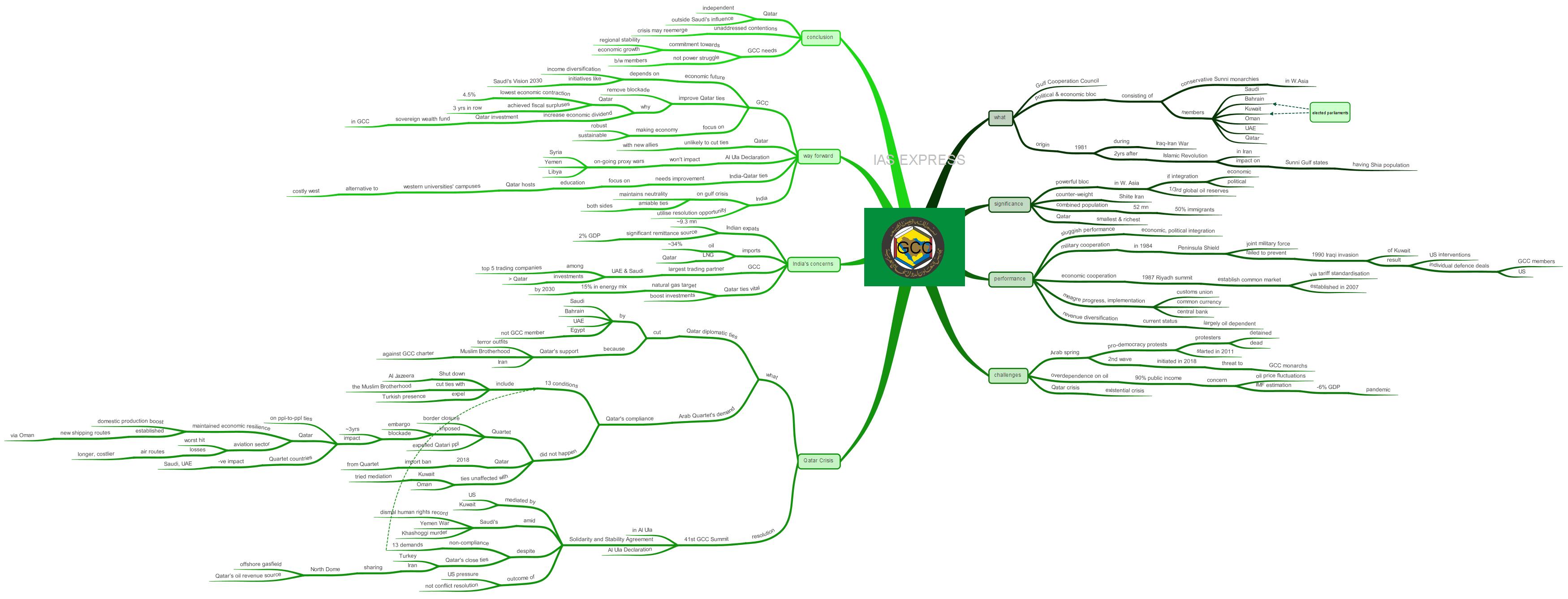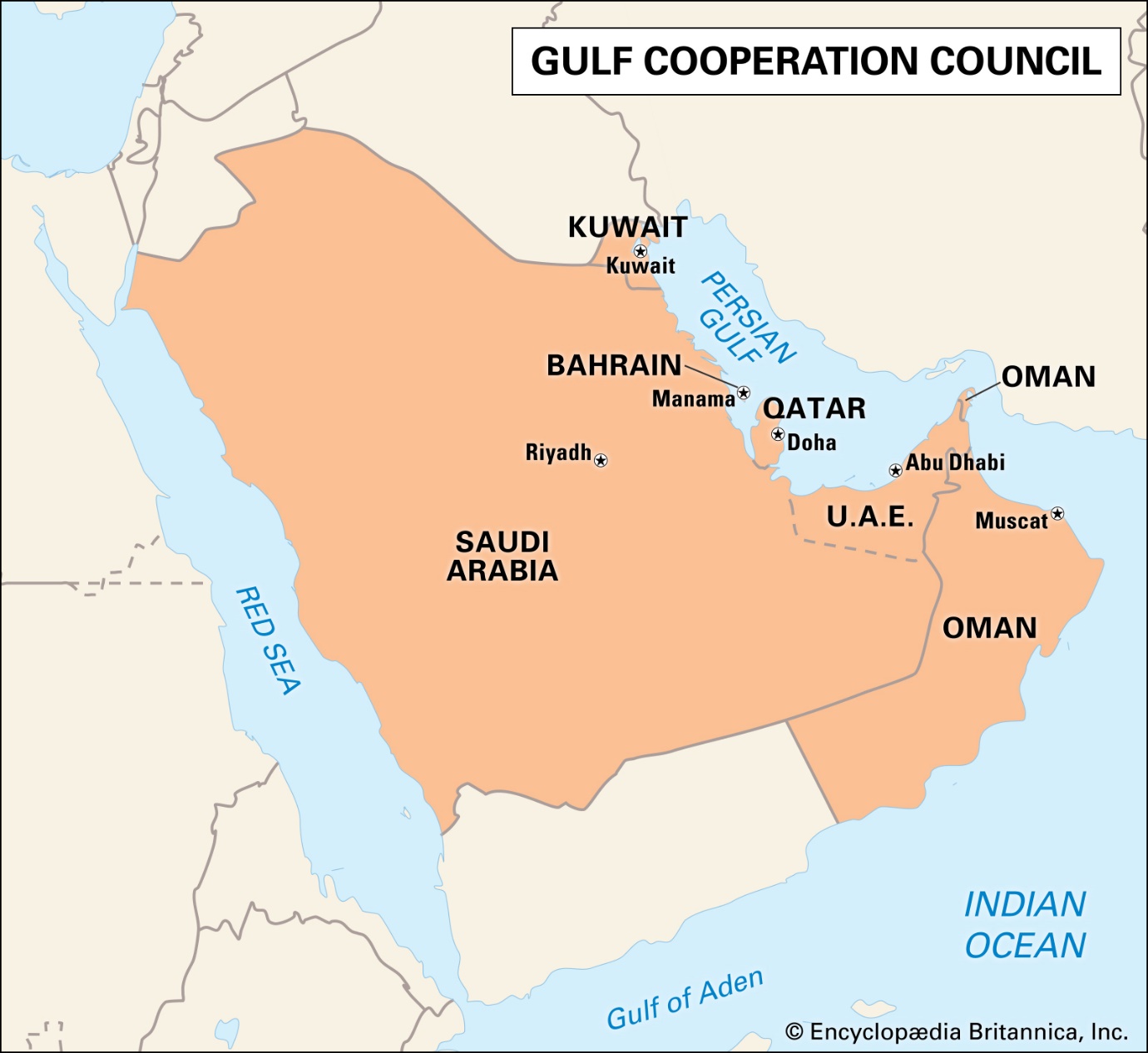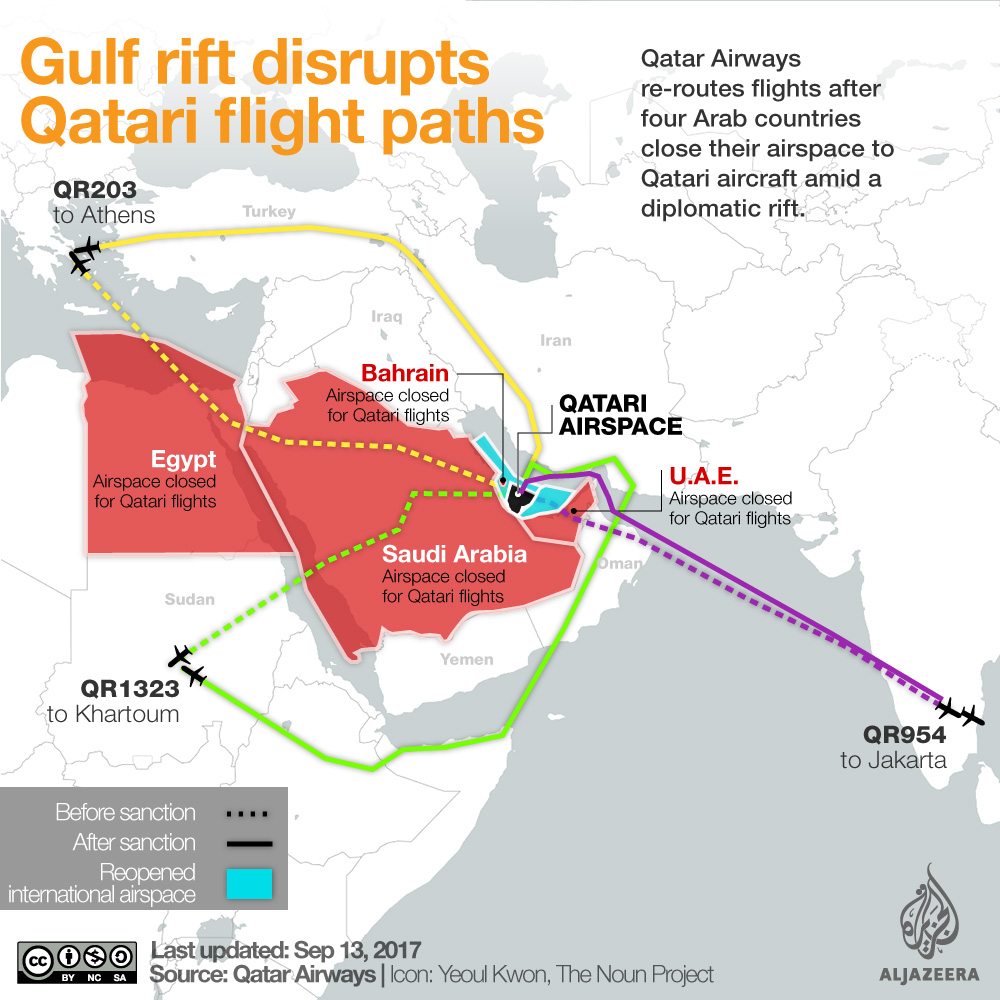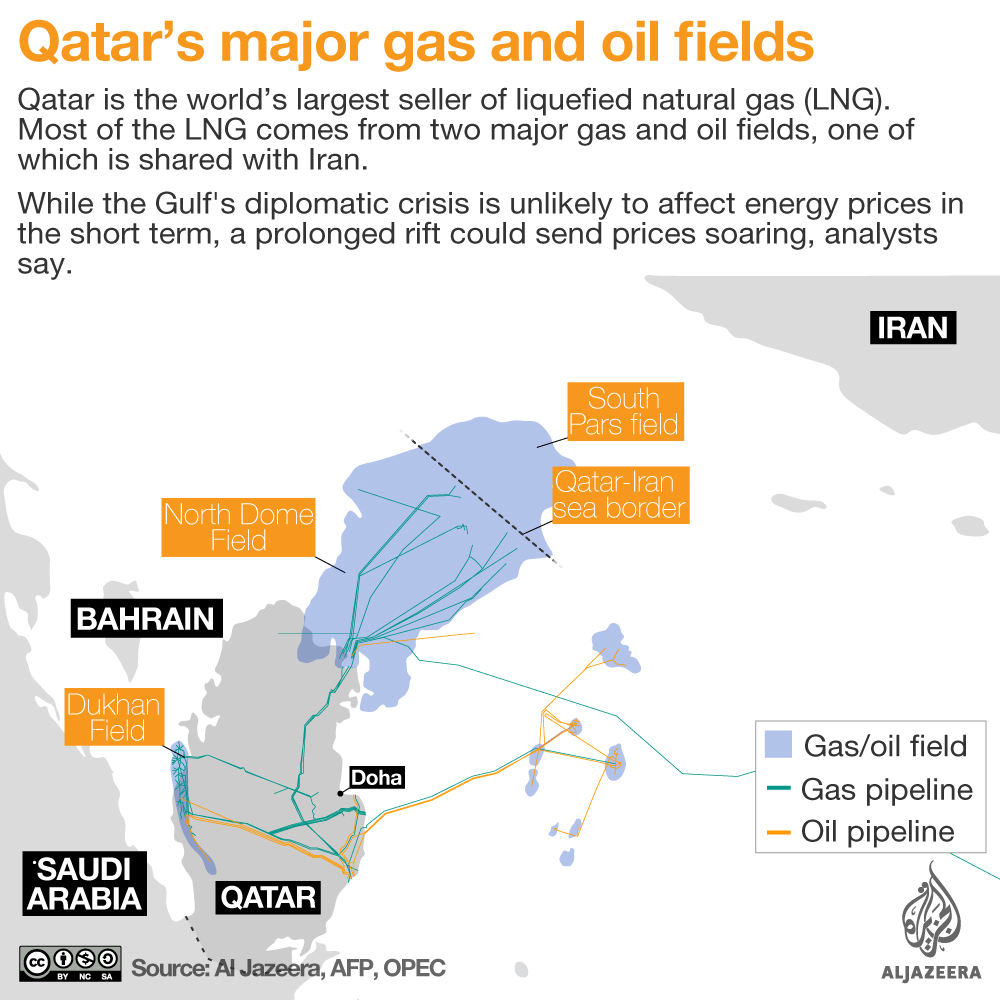Gulf Cooperation Council – Qatar Crisis and its Resolution
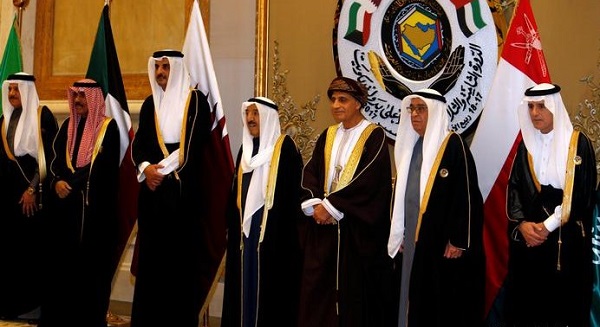
After three and a half years of tensions and blockades, the GCC had come together to reconcile and sign the Solidarity and Stability Agreement. The stability of this West Asian grouping holds significance for India as a major trading partner.
This topic of “Gulf Cooperation Council – Qatar Crisis and its Resolution” is important from the perspective of the UPSC IAS Examination, which falls under General Studies Portion.
What is Gulf Cooperation Council?
- The Gulf Cooperation Council or GCC is a political and economic
- It is composed of conservative Sunni monarchies in West Asia.
- Its members are:
- Saudi Arabia
- Bahrain
- Kuwait
- Oman
- UAE
- Qatar
- The Council was constituted in 1981 when the Iraq-Iran War still raging.
- This is just 2 years after the Islamic Revolution took place in Iran. The revolution had major impact on the Sunni Gulf states- many of which have significant populations of Shia Muslims.
- Only 2 member states have elected parliaments with powers to legislate- Bahrain and Kuwait.
Why is the Council significant?
- The council was formed with the objective of greater integration– economically and politically. If this is realized, it would form a powerful bloc in the west Asian region.
- The GCC countries account for 1/3rd of the oil reserves of the world.
- It is considered as a counter-weight to Shiite Iran in the West Asian region.
- The member nations have a combined population of 52 million people. Notably, some 50% of these population is immigrant.
- Of these countries, Qatar is the smallest but richest
How has the Council fared?
- With regards to their object of greater economic integration and political harmony, progress has been sluggish.
- The council also has objectives of military cooperation. In 1984, the GCC formed the Peninsula Shield– a joint military force. But it wasn’t able to prevent Iraqi invasion of Kuwait in 1990. USA had to intervene to drive out the Sadam Hussein-led army. This led to the GCC members individually signing pacts with the USA for defence cooperation.
- On the economic front, the members agreed to establish a common market by standardising tariffs during the Riyadh summit in 1987. The GCC common market was established in 2007.
- The GCC countries have also agreed to establish customs union, a common currency and a central bank. But progress on many of these issues has been meagre on the implementation
- The Gulf countries, have been attempting to diversify their revenue sources but are still largely oil dependent.
What are the challenges facing the council?
- The 2011 Arab Spring pro-democracy protests: though most of the GCC countries managed to dodge these, Bahrain had to resort to use of authoritarian force to crush the demand. The Gulf force was deployed to safeguard the kingdom and many of the protestors were detained and even killed in some cases.
- The second wave of the Arab Spring that started in 2018 is a current threat to the monarchical GCC countries.
- Overdependence on Oil: Oil revenue accounts for up to 90% of public income. This is a continuous source of concern for the Gulf nations. The 2014 fall in oil price put a strain on their finances. These traditionally rich countries had to resort to borrowings to cover spending.
- These countries continue to be vulnerable to fluctuations in oil prices. The impact of the pandemic-driven lockdowns on the oil demand is posing a major challenge to the countries’ revenues.
- According to the IMF, the GCC nations are expected to see a 6% drop in GDP due to the current situation in oil market. This would be the GCC’s worst economic slump in decades.
- In addition to this, the Qatar crisis has been posing an existential threat to the council.
What is the Qatar Crisis?
- The bloc had been in a state of crisis since 2017 when 3 GCC members, Saudi Arabia, Bahrain and UAE cut diplomatic ties with Qatar, a fellow GCC member.
- At the time, Egypt, though not a member of GCC but a significant player in the West Asian politics, also severed ties with Qatar.
- The move came amid allegations of Qatar supporting terror outfits (namely, Hamas and Houthis) and nurturing close ties with Iran, their common rival. They also accused the GCC member of violating the GCC charter by giving support to the Muslim Brotherhood.
- The tensions existed as early as 2014 when the 4 countries recalled their ambassadors from Qatar.
- The countries demanded Qatar’s compliance with 13 conditions put forth by Saudi Arabia, which led the ‘Arab Quartet’. They even threatened military interventions.
- Some of these demands include:
- Shutting down of Al Jazeera, Qatar’s flagship news network.
- Cutting ties with the Muslim Brotherhood.
- Expulsion of Turkish presence from Qatar, etc.
- As Qatar had refused to abide by any of these demands, the Quartet proceeded to close its borders, imposed an embargo and expelled thousands of Qatari people from its territories.
- In 2018, Qatar too banned the import of goods from these countries and started addressing the resulting deficit by sourcing from other countries like Turkey.
- In addition to this, the Quartet imposed a blockade via air, sea and land routes to the small Arab nation for over 3 years.
- Meanwhile, the other 2 members of GCC, Kuwait and Oman retained their ties with Qatar. Kuwait even tried to mediate between the parties.
Fallout of the blockade:
- The people of the GCC nations share familial bonds in many cases. Hence the people to people ties were greatly impacted due to the blockade.
- Though initially shaken by the crisis, Qatar has improved its economic resilience.
- The worst hit was the Qatari aviation sector. The national airline suffered losses as it was forced to use longer and costlier air routes as the airspace was blocked by the Quartet.
- Qatar had made use of the blockade to develop economic resilience by launching drives to domestically produce goods that were till date being shipped in from UAE and Saudi Arabia.
- It had also established new shipping routes via Oman.
- According to IMF, Qatar had largely succeeded in absorbing the impact of the diplomatic rift.
- The blockade’s fallout didn’t spare the Quartet countries either- especially Saudi Arabia and UAE.
Has the Qatar crisis been resolved?
- At the recent 41st GCC Summit, held at Al Ula in Saudi Arabia, the Solidarity and Stability Agreement was signed.
- This is a US and Kuwait mediated agreement to withdraw the blockade and to resolve the crisis.
- The summit also saw the release of the Al Ula Declaration a final communique.
- This agreement comes at a time when USA is transitioning into a new administration and its possible implications on various issues regarding Saudi Arabia, such as its dismal human rights record, Yemen War and the Khashoggi murder in the Saudi consulate in Turkey- which may have direct implications for Saudi crown prince Mohammed bin Salman.
- Though Qatar is back within the folds of GCC, it is noteworthy that none of the 13 demands have been fulfilled by Doha. In contrast, Doha has grown closer to Iran and Turkey and there aren’t any signs of them parting ways.
- Even at the summit, the absence of certain key leaders and the anti-Iran sentiments expressed in the final communique indicates that all is not well yet.
- It is also premature to expect the lifting of all boycotts.
- The deal is hence seen more as an outcome of American pressure than a genuine attempt at conflict resolution.
Why is GCC of concern to India?
- Over 3 million Indian expats are in the GCC countries.
- They are a significant source of remittance– accounting for 2% of India’s GDP.
- The GCC is India’s largest trading partner. UAE and Saudi Arabia are among the top 5 trading companies.
- Over 34% of India’s oil imports are from GCC. A huge portion of liquefied natural gas imports are from Qatar.
- Over the years, India has been strengthening economic ties with UAE and Saudi Arabia. eg: Ratnagiri refinery project.
- Investments from these 2 countries far outweighs the investments from Qatar.
- But ties with Qatar is also vital for India’s goal to increase the share of natural gas in its energy mix to 15% by 2030 (currently: only 3%).
- The resolution of the Qatar crisis will help India attract investments from this rich West Asian neighbour also. For this purpose, a task force was set up in 2020 to identify projects in various sectors (like energy) for attracting investments from Qatar.
What is the way ahead?
- The economic future of the GCC countries depend on their successful diversification away from petro dollar. For this they have come up with the likes of Saudi Vision 2030.
- However, the GCC economies are contracting significantly according to IMF. This makes it difficult for the countries to achieve diversification while devoting resources to isolate Qatar.
- The countries would be better off suspending such regional trade blockades to focus their energies on making their economies more robust and sustainable.
- Notably, Qatar is to experience one of the lowest GDP contractions of the Gulf nations (5%), while others like UAE (6.6%) and Saudi Arabia (5.4%) are under greater pressure.
- Also, Qatar became the only Gulf nation to achieve fiscal surpluses for 3 years in a row after the initial deficits faced in 2017.
- The end of the dispute will generate much needed economic dividends for the Gulf countries.
- For instance, Qatar has already put forth the possibility of its sovereign wealth fund investing in Saudi Arabia and other Gulf countries. This would greatly help these countries in their diversification efforts.
- Apart from this, the root cause of the Qatar crisis is the stark differences in foreign policy. Any deal struck without addressing the root cause of the dispute may not have a long life.
- Notably, none of the 13 demands have been fulfilled by Qatar. In fact, it has called for greater cooperation from the Gulf states towards Iran.
- This indicates that Qatar is likely to maintain its ties with Iran, Turkey and also non-state actors like the Muslim Brotherhood.
- It is also difficult to cut ties with Turkey and Iran as they rushed to aid Doha with food and essential commodities during the blockade. In addition to this, Iran and Qatar share the ‘North Dome’– a gigantic offshore gasfield that forms a significant source of Qatar’s oil revenue.
- Hence despite the Saudi call for ‘Gulf unity’ in the face of ‘Iranian threat’, it is very unlikely that Qatar would sever ties with its new friends.
- The Al Ula Declaration is also unlikely to impact the ongoing proxy wars in Syria, Yemen and Libya as the root cause hasn’t been addressed.
- From the Indian stand point, ties with Qatar needs to be strengthened. One possible are of focus is education as many western universities have campuses in Qatar. Indian students could look at these as an attractive alternative to the more expensive counterparts in the western nations.
- If the rift in the GCC were to resurface, India would likely remain neutral to maintain amiable ties with both sides.
- The current resolution provides immense possibilities for engagement and this should be tapped to India’s benefit.
What is the conclusion?
The GCC is currently showing green shoots after 3 years of standing on the brink of extinction. The 2017 crisis has shown how Qatar has managed to come out of Saudi Arabia’s shadows and the recent Solidarity and Stability Agreement has cemented its image as an independent nation. However, the rifts in the bloc still exist just below the surface and may resurface if underlying causes remain unaddressed. A greater commitment towards regional stability and prioritising economic growth over pursuit of supremacy is needed for complete reconciliation and development of GCC into a Gulf Union.
Practice question for mains
The GCC’s Solidarity and Stability Agreement is a ‘detente borne more of exhaustion than compromise’. Elaborate.
https://www.financialexpress.com/world-news/knitting-the-gulf-with-spider-web/2168635/
https://studies.aljazeera.net/en/dossiers/2015/03/20153316186783839.html
https://www.financialexpress.com/world-news/gulf-reconciliation-the-tough-road-ahead/2170032/
https://www.aljazeera.com/news/2020/12/30/whats-behind-the-latest-gcc-reconciliation-efforts
https://www.aljazeera.com/news/2020/6/5/qatar-blockade-five-things-to-know-about-the-gulf-crisis
